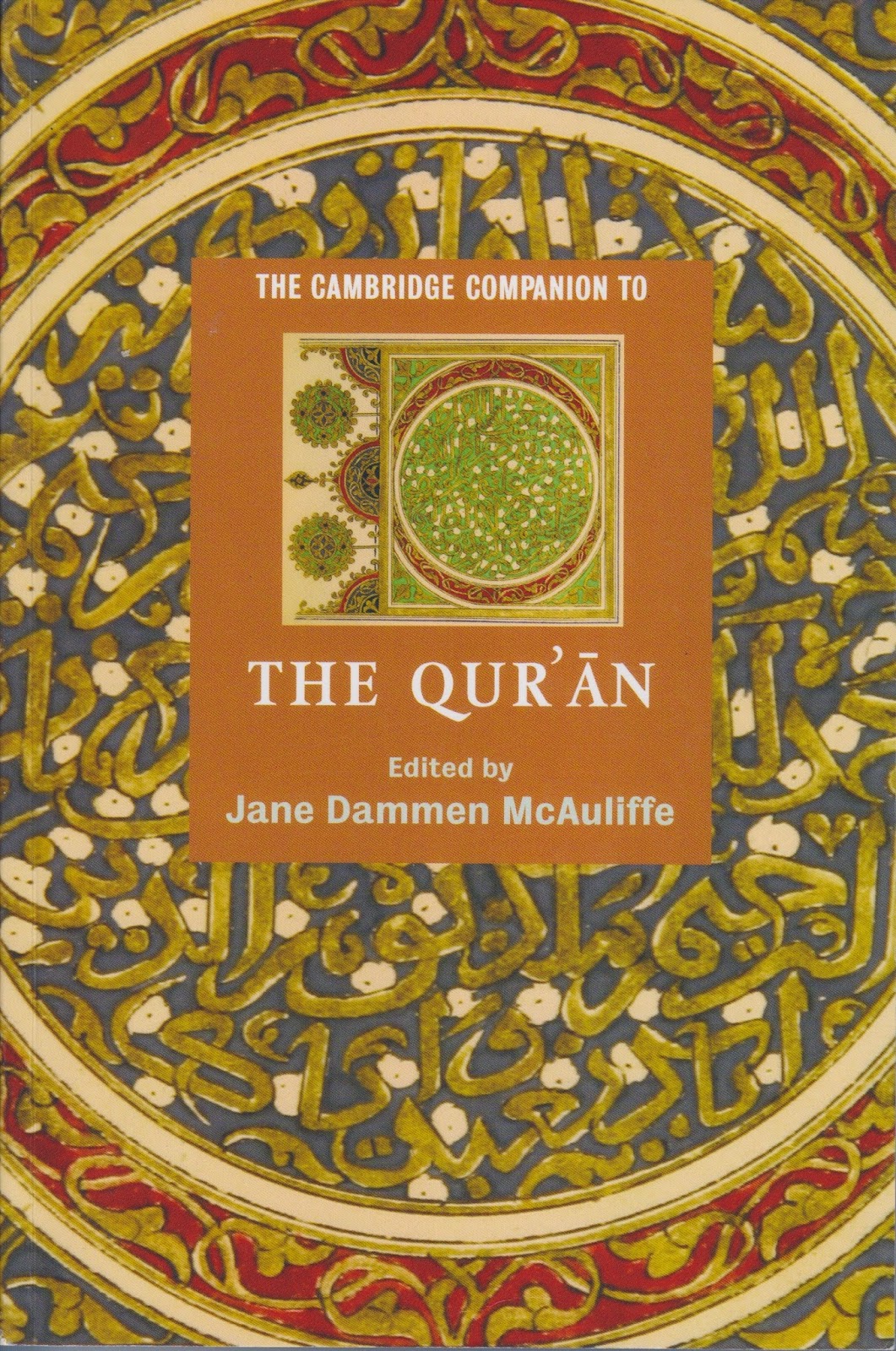To supplement my current reading/writing project The Qur'an: a Book Report, I've been watching documentaries and reading academic stuff about the holy book of Islam. I'm currently reading The Cambridge Companion to the Qur'an, which is an excellent (and recent) collection of essays by modern scholars on various aspects of the Qur'an. Last week, I wrote a post about the historical context of the Qur'an, which went into the life of Muhammad, aspects of 7th century Arabia, the formation of the text, etc. Today, I read an article by scholar Daniel Madigan (who teaches at Georgetown) which lays out the main themes of the Qur'an. Western readers unfamiliar with the Qur'an are often curious about the "main points" of the book. Here they are (and I must say that the themes Madigan identifies gel with what I've read so far, which is 22 surahs):
1.) God is one, absolute. As can be seen from a quick glance at the rest of this list, the main subject/theme of the Qur'an is God. The Qur'an posits a monotheistic view of the divine. There are no other gods. This is the view of Judaism and (kind of) the view of Christianity (although the Qur'an has problems with the Trinity).
2.) God is creator. As in the Bible, God is seen as the creator of the universe, the earth, and all living things, including human beings. Throughout the Qur'an, creation (or the natural world) is seen as evidence of God's existence, power, and provision for humanity.
3.) Faith is the acknowledgement of God as sovereign creator. In the Qur'an, faith means believing in the one God and his creation, and responding with gratitude.
4.) In creating, God reveals. Many times in the Qur'an, elements of nature are said to reveal aspects of God's character.
5.) God has no partners, no equals. In direct contrast to polytheists, the Qur'an posits that the one God is absolutely self-sufficient and powerful. He needs no other gods. For example, while the Qur'an accepts Jesus as a prophet, it denies his divinity, because this goes against the idea that God is one.
6.) God sends messengers (or prophets) to humanity. This is another constantly recurring theme in the Qur'an--that God sends human messengers (or prophets) to remind people of God's existence and power, and to encourage people to acknowledge God and follow him. Muhammad was merely the last in a long tradition of prophets that includes Adam, Abraham, Moses, Jonah, David, John the Baptist, Jesus, and many others.
7.) God gives life, causes death, and raises up. While previous polytheistic cultures saw death in terms of fate, the Qur'an posits that God is the one who gives life and death. It also repeatedly says that human beings will be resurrected at the end of time, to be judged.
8.) God is the most just of judges. After humans are resurrected at the end of time, they will be judged based on their faith and deeds, and sent to either heaven or hell. This dualism (heaven/hell) is also an important doctrine of orthodox Christianity.
9.) God is merciful. While God is just in his judgment of humans, he is also repeatedly described as merciful, forgiving, and compassionate. There are over 500 references to God as forgiving in the Qur'an, and nearly every surah begins by calling God "the merciful, the compassionate."
10.) God is the guide for humans. Like the Bible, the Qur'an gives very specific laws and regulations for ordering individual and community life. There are regulations regarding marriage, inheritance, food, etc. Also, like the Bible, many of these guidelines must be placed in the context of their time (7th century Arabia).
11.) Believers must struggle to ensure that Islam is recognized. This last theme is controversial, as it relates to struggle (or, jihad) on behalf of Islam. Like in the Old Testament, armed conflict is sanctioned, however there are some important restrictions in the Qur'an. Surah 2 says "fight those who fight you, but do not begin the hostilities" and a bit later "if they desist, then God is forgiving, merciful." Surah 8 says "if they are inclined to making peace, then you too should lean that way." Like the culture-bound community guidelines, the Qur'an's comments on conflict and war must be firmly situated in their historical/cultural context (7th century Arabia), when Muhammad and his followers often came into conflict with the more powerful Quraysh tribe.
Anyway, those are some of the main themes of the Qur'an.

